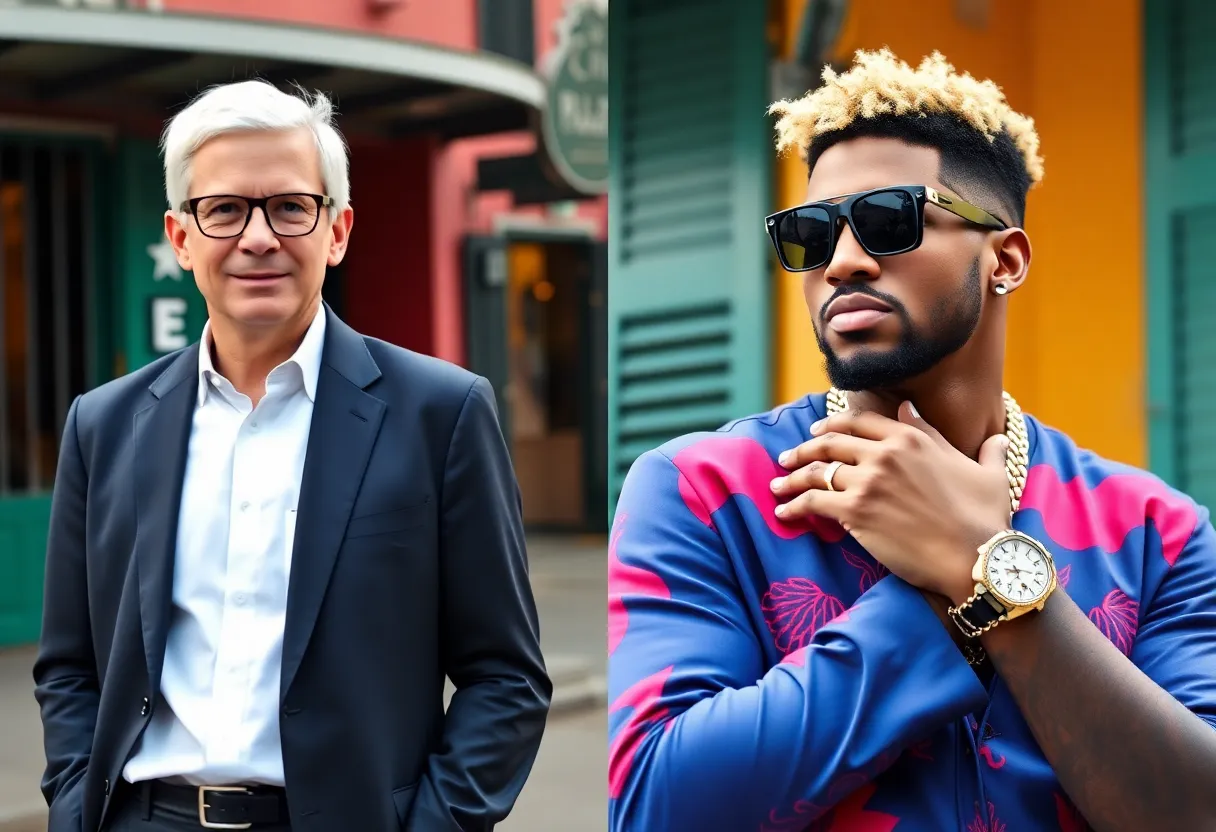

A stark contrast in fashion: Tim Cook versus Odell Beckham Jr. during their outing in New Orleans.
Article Sponsored by:
Real Internet Sales is a digital marketing agency located in Columbia, South Carolina. We specialize in website design and development, SEO, social media management, online advertising, AI integration, and workflow automation. Our services also include affiliate marketing and digital strategy.
Real Internet Sales also offer specialized programming for real estate firms, using IDX and RETS feeds to automatically populate MLS properties on their websites for improved property listings and sales. We also work with clients in the restaurant, tourism, and e-commerce industries to enhance their digital presence and streamline operations.
Want to target the right audience? Sponsor our site and choose your specific industry to connect with a relevant audience.
Prominent brand mentions across targeted, industry-focused articles
High-visibility placements that speak directly to an engaged local audience
Guaranteed coverage that maximizes exposure and reinforces your brand presence
Interested in seeing what sponsored content looks like on our platform?
May’s Roofing & Contracting
Forwal Construction
NSC Clips
Real Internet Sales
Suited
Florida4Golf
Click the button below to sponsor our articles:
Sponsor Our ArticlesA recent outing in New Orleans sparked a fashion debate as Tim Cook and Odell Beckham Jr. displayed contrasting styles. Cook’s understated billionaire vibe clashed with Beckham’s flamboyant millionaire flare, representing broader societal discussions on wealth and fashion. The debate extends into shifting luxury consumerism, raising questions about sustainability and ethics in fashion.
This past weekend, a simple outing to a New Orleans restaurant turned into a lively debate over fashion and wealth as Apple CEO Tim Cook and football star Odell Beckham Jr. showcased their very different styles. While Cook donned a classic, understated outfit of trousers and a shirt, Beckham turned heads in a dazzling ensemble that prominently featured a stunning watch valued at a jaw-dropping $490,000.
The stark contrast in their fashion choices sparked discussions online, highlighting what’s being referred to as “billionaire fashion” versus “millionaire fashion.” Tim Cook’s neat and simplistic look perfectly epitomizes the low-key style often preferred by the ultra-wealthy, suggesting that true affluence doesn’t require the spotlight. Meanwhile, Beckham’s eye-catching attire resonated with a more flamboyant approach to fashion, reminiscent of the many designers making headlines for their extravagant creations.
Interestingly, Cook’s net worth is estimated to be around 60 times greater than Beckham Jr.’s. Yet in the world of fashion, their differing styles bring forth a thought-provoking contrast: for many, the distinction in wealth might seem minor, especially as both individuals navigate their own very successful careers. This debate isn’t just about two celebrities; it reflects broader societal norms regarding how we display wealth through fashion.
In recent years, luxury brands have increasingly been associated with middle and upper-middle-class consumers instead of the old-school elite. It’s curious to consider that billionaires often avoid ostentation, finding assurance in their financial stability, while middle-class consumers may feel the pressure to exhibit a sense of wealth, sometimes even purchasing luxury goods with credit. This shift has made it increasingly common to see everyday folks donning designer items, bringing up the question: Is luxury fashion becoming more accessible, or are we redefining what it means to be rich?
However, this trend hasn’t come without its shares of criticism. With reports of brands like Armani and Dior facing allegations of unethical practices, including the destruction of surplus stock to maintain an image of exclusivity, consumers are starting to think twice before investing in luxury. Not to mention, the environmental footprint of luxury fashion is staggering, having contributed to over $2 billion in greenhouse gas emissions in 2018 alone, accounting for around 4% of global emissions. These statistics push us to reconsider the practicality and morality behind designer labels.
As the consumer interest in luxury brands wanes—evidenced by the falling stock prices of major brands like LVMH, Estée Lauder, Kering, and Burberry—the current climate presents a golden opportunity for shoppers to reassess their shopping habits. What if we shifted our focus from high-end conglomerate names towards independent artisan brands that prioritize ethics and sustainability? It’s a thought that many enthusiasts of fashion are getting behind.
So we find ourselves at a crossroads. Will we continue to succumb to the allure of false exclusivity, or will we seek out brands that foster a deeper connection of sustainability? The cultural influence of streetwear and logo-centric products reminds us that fashion is continually evolving, and how we want to participate in this evolution is entirely up to us.
In this era of changing fashion norms, perhaps it’s time to define our style not by extravagant labels but by meaningful choices that reflect *who we are* and *what we value* in our consumption.”

7001 St Andrews Rd #329 ,
Columbia, SC 29212,
United States
Phone: (+1) 803 708 5514
News Summary A couple from Michigan, Paul and Christy Akeo, faces legal troubles in Cancun…
News Summary The Michigan Department of Agriculture and Rural Development (MDARD) has announced the allocation…
News Summary Michigan is confronting a severe food crisis as food banks prepare for imminent…
News Summary Following the tragic death of 5-year-old Thomas Cooper in a hyperbaric oxygen chamber…
News Summary Michigan is experiencing the highest increase in unemployment rates in the nation, rising…
News Summary The Novi Home & Garden Show will take place from March 28 to…